|
by Gwendolyn Plano  For most of my professional life, I worked with college students helping them with one difficulty or another. Sometimes the problem was easily resolved (i.e., moving the student from one residence hall to another or finding the needed resources). But, more often than I wish to recall, the presenting problem required much more than common ingenuity; it required wisdom, compassion--and justice. Residential colleges are microcosms of the whole, and as such, they experience the joys and the sorrows of larger communities. No one knew that while I worked with students who were victims of date rape or battery, that I knew first hand their fear. I kept my life hidden behind closed doors. What was my shame, though, is our collective indignity. The statistics are staggering--every 9 seconds in the United States, a woman is assaulted or beaten. We collectively ignore the facts and listen as commentators argue about whether or not a NFL player should be suspended for hitting his lover so hard that she lay unconscious. How will a suspension impact the team? they ask. A few months ago, former President Jimmy Carter issued a call to action to end the abuse and subjugation of women, and he referred to it as the “worst and most pervasive and unaddressed human rights violation on Earth.” In his new book, he relates subservience to violence, and asks all of us to look afresh at our organizations and systems. Of recent, I've been asked to explain Perfect Love. It is easy to say what it is not: it does not have a hierarchy of value, it does not hurt or diminish, it is not male or female. The Perfect Love of which I write, is a love that is without human limitations or conditions. It is a love that holds us, permeates our being, cherishes our very existence. Through hurdles great and small, I've come to know this love.......and that is why I write, for through this love I now know joy. by Gwendolyn M Plano We meet, you and I, along the road of life. Maybe we spot each other on a subway platform or while shopping in a crowded department store. Were you the one with the worn leather briefcase?
Perhaps I saw you wrapped in a torn blanket sitting on a busy Manhattan sidewalk. I wonder if I paused to greet you, or did I just hurry past? Was it you who held out your hand? I look for signs when I get behind the steering wheel of my old Outback Subaru; but, do I pay attention to the guideposts within my heart? The ones that say, "Follow your joy." "Live your truth." "Slow down, enjoy this moment." "Are you sure this is what you want?" Do I listen? What if our life challenges are the directional signs--whispering through our sorrows and our fears: "Turn here, not there." Could they be blessings in disguise, helping us choose our way and saving us from our prior mistakes? The unknown can seem so foreboding, but what if we knew that Love awaited us? Would we risk the night? Would we listen? A glimpse through a photo.....
Perfect Love--without limitations, without conditions, without expectations..... by Gwendolyn Plano 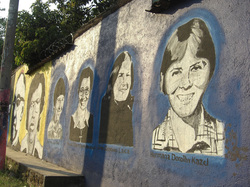 In an earlier reflection I wrote about my friends who were murdered on December 2, 1980. This entry is a modification of that post. This time of the year is sacred for me. I remember my friends...and through them, all who have passed away. I was in my office when the call came: Jean is missing; we fear the worst. I rushed out of my office, spoke briefly with colleagues, and went home. I knew where she was. My friend, Jean Donovan, and three nuns (Dorothy Kazel, Ita Ford and Maura Clarke) had gone to El Salvador to provide food, shelter, and medical care for the poor. They were warned of the danger, but they loved the children and refused to leave. Jean returned to the U.S. briefly in the fall of 1980, and as she held my baby son, she talked about her upcoming nuptials and her desire for a family. Normal topics for a 27 year old. I urged her not to return to El Salvador, but her response was lighthearted, "where else do roses bloom in December." Then she shared her deepest fear--that she would be found in a ditch, raped and murdered. Her fear became a reality December 2nd. I cannot look at a rose without remembering Jeannie, Ita, Maura and Dorothy. But today, I also find myself thinking about all the war-torn areas across the globe--where so many families are in tears, among the roses. 30 years have passed since my friend's untimely death, but it seems that only the geography has changed. What do we need to do to stop the violence? Ita wrote to her niece about four months before she was killed. It's a letter meant for all of us. August 18, 1980
Dear Jennifer, The odds that this note will arrive for your birthday are poor, but know I'm with you in spirit as you celebrate 16 big ones. … What I want to say...some of it isn't too jolly birthday talk, but it's real... Yesterday I stood looking down at a 16-year-old who had been killed a few hours earlier. I know a lot of kids even younger who are dead. This is a terrible time in El Salvador for youth. A lot of idealism and commitment is getting snuffed out here now. … Brooklyn is not passing through the drama of El Salvador, but some things hold true wherever one is, and at whatever age. What I'm saying is, I hope you come to find that which gives life a deep meaning for you...something worth living for, maybe even worth dying for...something that energizes you, enthuses you, enables you to keep moving ahead. I can't tell you what it might be -- that's for you to find, to choose, to love. I can just encourage you to start looking, and support you in the search. Maybe this sounds weird and off-the-wall, and maybe, no one else will talk to you like this, but then, too, I'm seeing and living things that others around you aren't... I want to say to you: don't waste the gifts and opportunities you have to make yourself and other people happy... I hope this doesn't sound like some kind of a sermon because I don't mean it that way. Rather, it's something you learn here, and I want to share it with you. In fact, it's my birthday present to you. If it doesn't make sense right at this moment, keep this and read it sometime from now. Maybe it will be clearer... A very happy birthday to you and much, much love, Ita The twists and turns of our life journey can overwhelm us. More often than not, it is
as we look back, sometimes years later, that we regain perspective and possibly find a deeper meaning for our suffering--especially if we have changed for the better because of what we have withstood. Our miracle may not manifest as a flash of light or the healing of a debilitating illness. Maybe our miracle is wrapped in newly experienced joy--after re-discovering who we are.... When we were about 5 or 6 years old, we developed a sense of fairness based on equal distribution--the same number of cookies, or marbles or crayons for each. Through the years, our understanding shifted, to include the value of the object--and then one of my loved items did not necessarily equal one of yours.
And where might our 5 year old be? She or he sleeps within our hearts, awakening at the call of tragedy. It's not fair, she exclaims. Why me? she demands to know. If we can pause to hold our child, the frightened 5 year old within, the melded tears can wash the fears and perhaps reveal a fairness complete. And on the best of days, we realize that all is given to help us become who we were created to be. Even as a young child, I was drawn to all things mystical or religious. Before I could read, I declared to mom that I wanted to be a priest someday. "But you can't dear," she whispered as we sat in church. "Why not?" I persisted, unfazed by the murmuring prayers of those around me. "Because you are a girl," she said with quiet emphasis. Because I am a girl?
It made no sense to me back then. I had no say in the matter; I did not choose my gender. So, I argued with God. "Why did you make me a girl?" I demanded to know. "This is unfair!" I insisted. I'd watch the altar boys and the priests with robes flowing, and I doubted my value. Years later I completed a theology degree and then a pastoral counseling degree with classrooms of seminarians and a few sisters. But, I still stood at the sidelines of church-related drama. By then, though, I understood--the politics, the fear, and the tradition. When we separate ourselves from others--because of gender (or race, or sexual identity), we create a hierarchy of value that fosters mistrust and sometimes acrimony. But today, something extraordinary occurred, which levels the manmade ranking. The Church of England decided that not only can women become priests, they can now become bishops. I think of my granddaughter, who dreams without restriction. Maybe she will wear the robes some day....at least she has the choice. How amazing! Years ago, when I was feeling very confused and lost, a friend gave me a copy of Thomas Merton's autobiography, The Seven Storey Mountain. Merton's world and mine could not have been more dissimilar. I was a young mother working full-time, and my days were filled with meetings and crying babies. Merton was a Trappist monk, and his life was one of silence.
The book sat unopened on my dresser for weeks, but then one evening, as my baby nestled into my shoulder, I began reading it. I wandered with Merton through his early years in Europe and his adventures in New York. I cried with him when he lost his mother and then his father. And as he struggled to understand life's purpose, I realized that I had found a friend. He reminds me even today that, "Love is our true destiny. We do not find the meaning of life by ourselves alone - we find it with another." Who is this person or persons for you? Seen or unseen, we are never alone. And, always, we are accompanied by Love, as we walk the sands of life.
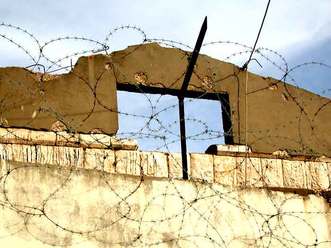 As border areas in the Middle East erupt in violence, we watch in horror as children are hurt and homes destroyed. But close at home, impoverished little ones rush across country divides seeking asylum from the violence they have known. These innocent ones know little of the politics of nations or the battle cry of imbedded histories. They struggle with fear and hunger--this is the reality they know. What are we to do, we wonder, with the masses of children crossing our borders? And, do we have a role with the wars distant but threatening?  How does one look a child in the face and say, you don't matter? You who hide under the rubble that was once a home, you who plead for help at our border, you who we do not know--why should we help you? We want answers, but have none, and so we argue among ourselves--while the children wait. There is a haunting verse in the Gospel of Luke that reads: "To whomever much is given, of him will much be required; and to whom much was entrusted, of him more will be asked." To understand what is being asked, perhaps we need to pause in prayer or meditation. Deep within each of us, there is a well of love—a place of wholeness, a place of completeness. This inner space is alive with wisdom and tenderness. And if we could rest in this sacred place for just a short while, perhaps answers would emerge that would quiet our hearts and soften the cries of the children. Womensenews.org just published an article from my book. Enjoy:
Kids Underfoot at Quilting Bee Overhear True Tales Sunday, July 6, 2014 As a child, well before Gwendolyn M. Plano entered a violent marriage that lasted 25 years, eavesdropping on countrywomen's quilting bees provided glimpses of what her elders endured, she says in this excerpt from "Letting Go into Perfect Love." (WOMENSENEWS)--When I was a young child, countrywomen gathered to sew quilts for celebrations and passings. Mother took us with her when she met with her friends in the basement of the rural Methodist church, beside the dirt road at the edge of the sugar beet fields. We were told to play quietly with our coloring books while they worked. Sometimes we did; other times we did not and chose instead to run wild through the church. The women stacked their scraps of cloth next to the folded yards of batting on the table near the wall. I saw my dresses there--pieces of them--and wondered about the other striped and flowered samples of fabric. To whom did these fragments belong? Sometimes I snuck under the stretched material on the large wooden frame and listened as the women stitched and knotted. They talked about their families, about local people, about their hardships and about love. When they cried, I cried--even if I did not quite understand. It was their emotion that spoke to me. Later I would ask Mom about what I had heard, but she always said it was private, not something for me to know. I was left with just strands of stories--and feelings. "He grabbed me around the neck," Bonnie said. "I can't even wear my pearls now, can't have anything around my neck." Why not? I thought from my hiding place near her feet. As the women consoled her, I was left with questions--and fear. Who did this, and why? "Mary lost her baby earlier this week. It wasn't full-term. She got to hold it, though," Dorothy explained. "When I lost mine, they took it away," she said tearfully. Mom whispered something in return, and I strained to hear--something about another baby lost before its time. I desperately wanted to know more, but I never did, until many years later. More Stories "Did you hear about Jane's husband? Cut his arm on the blade of the plow and hasn't been able to work since. Awful, awful," Patty said. "Do you suppose we could bring over dinner?" Mom replied. The women quickly agreed and then decided to alternate nights among them. I thought about Theresa and wondered if she was okay. Her daddy was hurt, and that made me sad. Was there something I should do too? I learned a lot through the stories these countrywomen shared. Their cloth leftovers rhythmically sewn one to another helped me see the interconnectedness of life--though at the time, I understood only that the collected and fastened snippets created something beautiful for a family in need or for newlyweds just starting their life together. My most beloved quilt was a patchwork of a star radiating to the four corners of the comforter. This giant mandala of color had life sewn into it: my lilac polka-dotted Easter dress, my sister's flowered apron that earned her a blue ribbon at the fair, my mother's seersucker blouse--all were there, the remnants of cloth that we no longer needed. When I finger the fabric pieces, some soft, some crisp, I see my grandma, her hands stiffened and her eyes dim with age. I hear again her stories of sorrows and joys, and I see my own. This quilt, more than the others, pulses with the beginnings and endings of life. I don't sew like I did as a child. My writing has become my stretched cloth; it is the medium for my stories. Excerpted from "Letting Go into Perfect Love: Discovering the Extraordinary After Abuse" by Gwendolyn M. Plano. With permission from She Writes Press, copyright © 2014.  Mom has always been a reader. Her household of seven squabbling children kept her busy for sure. Nevertheless, she'd find time during the day to do what she loved most--read. Her friends from church would loan her their favorite stories, and she'd escape behind a closed door for a few moments of peace. When she did so, she traveled--beyond the stretches of farmland to worlds she had not seen. Sometimes she shared these adventures with us, and often she'd tell us about the saints she came to know--in Avila, Spain; Lourdes, France; Assisi, Italy; Fatima, Portugal and so many other foreign places. I followed my mother's lead when I began to read. I dreamed of working in lands I had never seen. My library card became a passport to the worlds alive in my imagination. And then I discovered why Mom was not worried about whether or not the house was perfectly clean.  Our country home sheltered us from the summer heat. The swamp cooler sprayed mist in the temperatures near 120 degrees. And while the house breathed tractors, combines and livestock feed, we children played make-believe. Mom taught us how to dream. I found my quiet spot under an outside eave, and there I read and began to write--about my dreams. Over the years my scribbles and sketches of places unknown became a journal in which life was captured on its sheets. It was a beginning for me. I look back now and marvel at what my mother gave to all of us--because she took time to read. Two years ago, I moved from California to the Ozark Mountains of Missouri. Surrounded by extraordinary beauty, I began to write my first book which was published last month. I expected to simply tell my story: a farm girl goes to the big city, falls in love, marries, experiences tragedy, falls in love again, marries but then knows abuse, and along the way has four beautiful children. As the pages unfolded though, I realized that my story was everyone's story. The details are unique, but the emotions accompanying those details are universal. We all know sorrow, fear, or regret; and, we travel through life trying to make sense of it all.
Maya Angelo wrote that, "There is no greater agony than bearing an untold story inside you." I now understand the agony of which she speaks, for the story ultimately is not mine--it belongs to all of us. I simply held a version of it temporarily and as I shared this version, I found many friends.... In 1985 Mother Teresa spoke at the United Nations. Throughout the crowded room of dignitaries and movie stars, attendees waited--for Mother to walk out onto the stage.
Bent with time and sacrifice, she arrived and the entire audience rose and offered respect. This diminutive woman held everyone's attention as she spoke of tangible love. Her words were simple and to the point, and people of all faiths and nationalities understood, for her language was universal. Oh that we might all learn this language......... We are defined by the names we are called. I'm mom to four, sister to six, aunt to dozens, cousin to hundreds, a wife to one, a friend to many....but who am I? And, who are you?
We categorize each other by religion, politics, profession and so much more, but do these affiliations tell us what we really want to know? Who is the person next to us--behind the familiar patchwork of identities? Recently I discovered artist Giuseppe Penone. About his work he states: "My artwork shows, with the language of sculpture, the essence of matter and tries to reveal with the work, the hidden life within.” The hidden life within....isn't that what we long to know? Penone carved out an older tree to expose the young tree deep within. What if we could get beyond the maze of identities we have amassed over time, would we find our inner child? I wonder what delight she or he might bring. |
For blog updates, please subscribe below.
Archives
June 2024
|
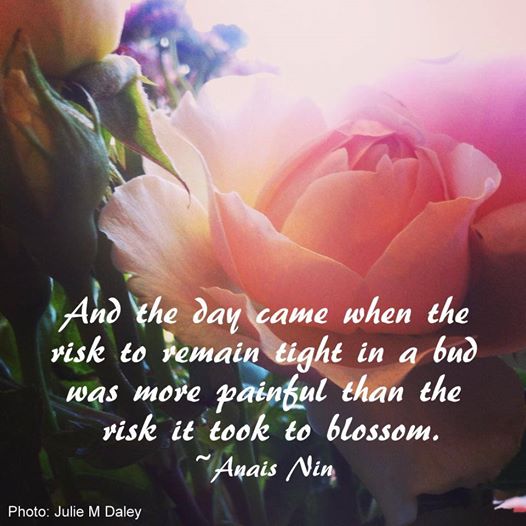


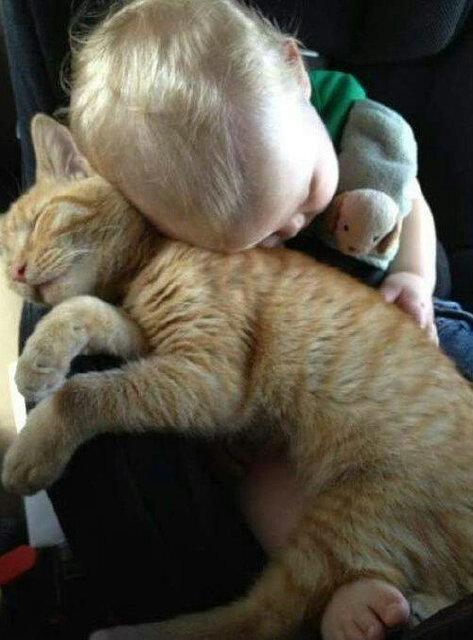
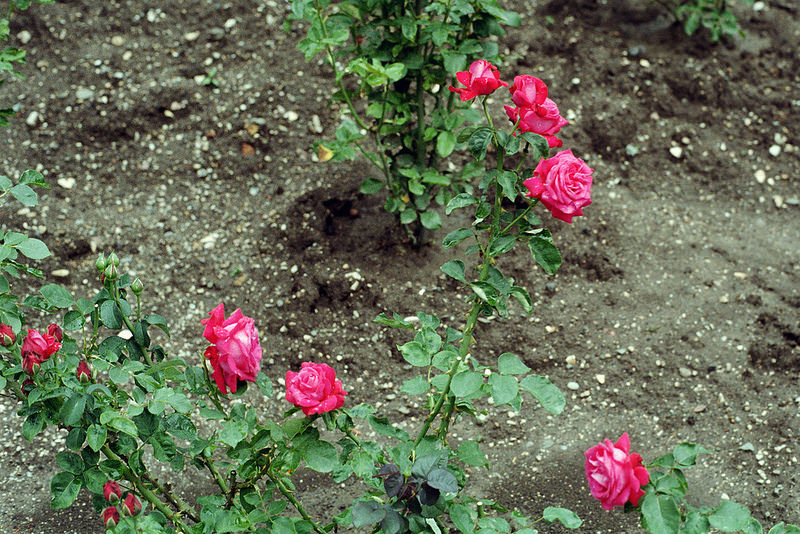
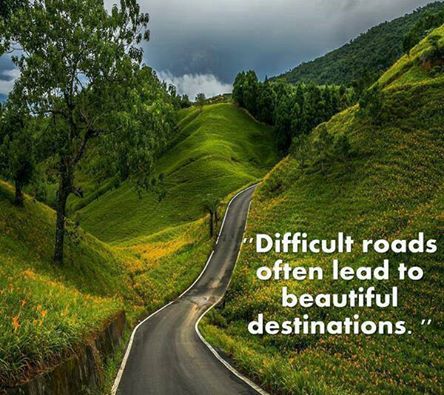
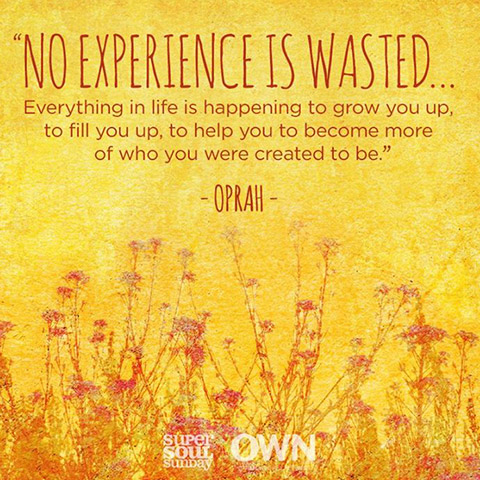
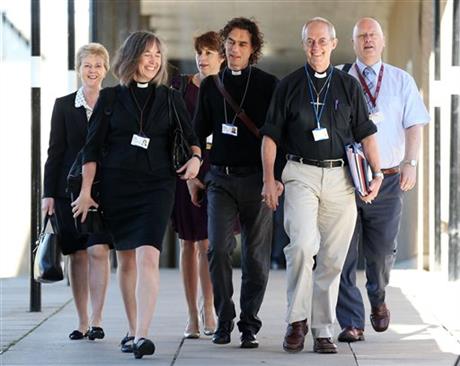


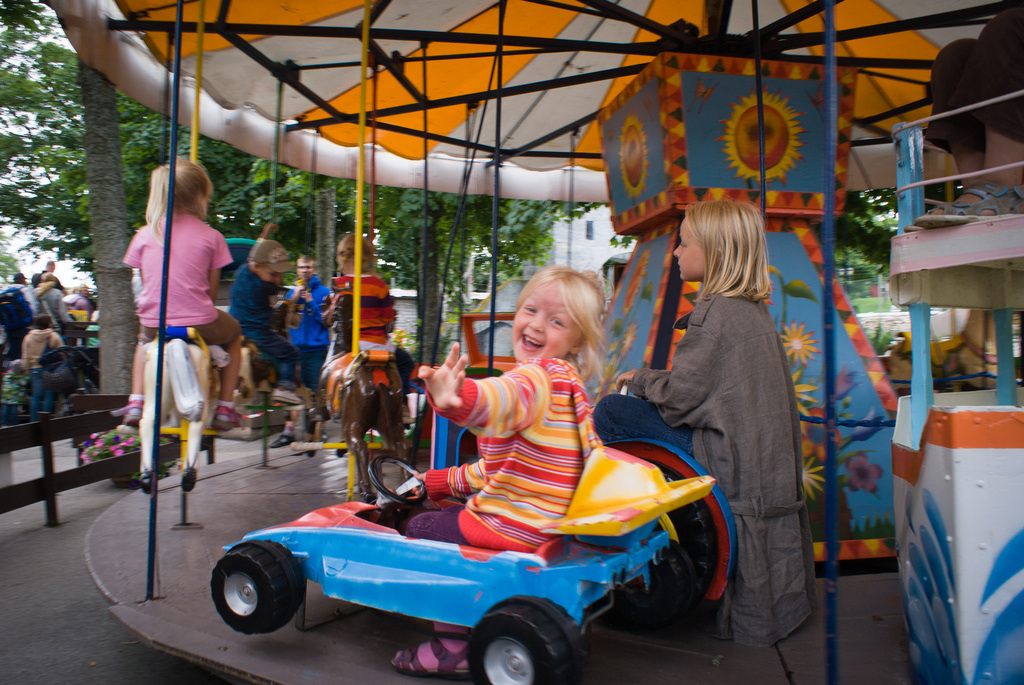
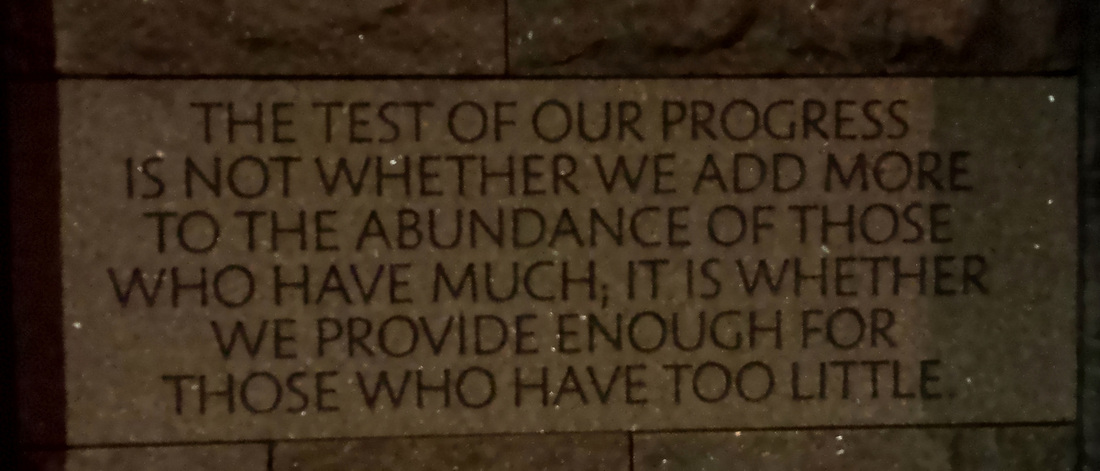
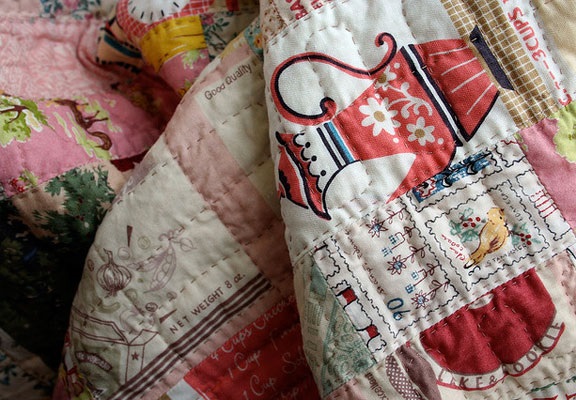
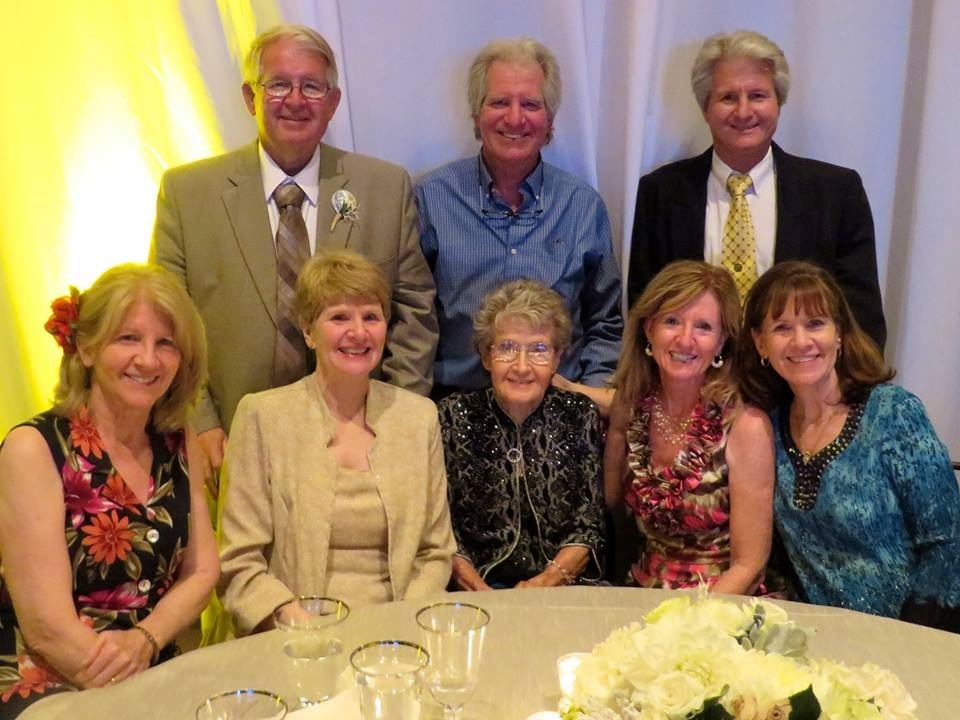
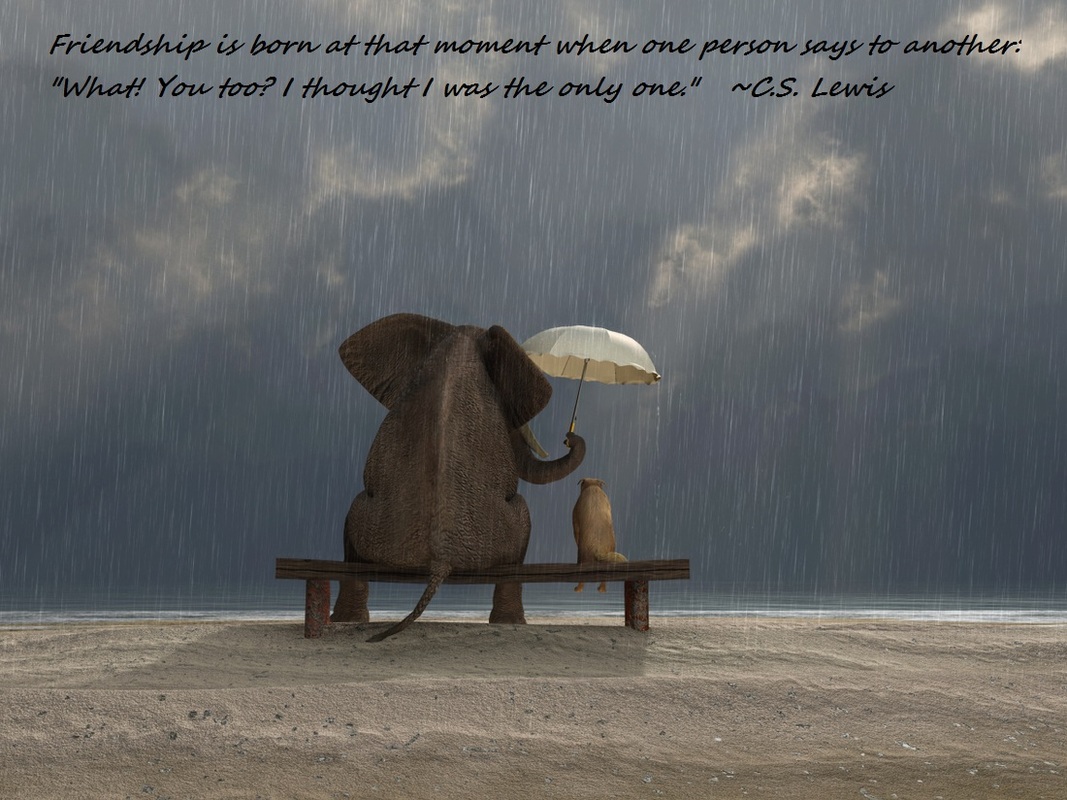
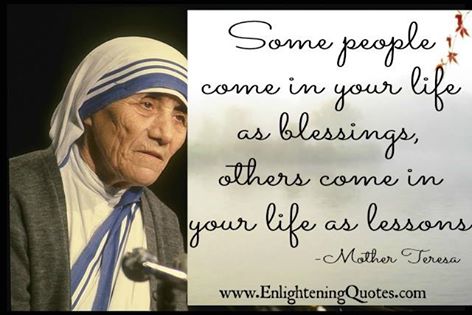
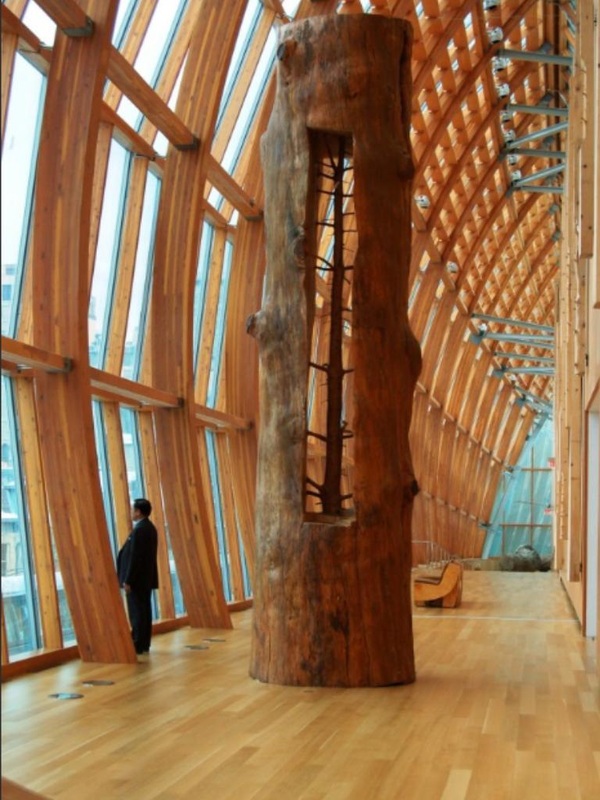

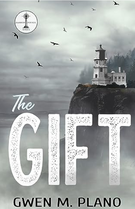
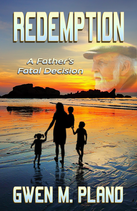

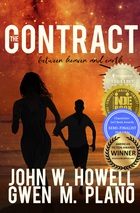
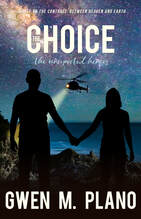
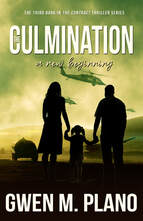
 RSS Feed
RSS Feed